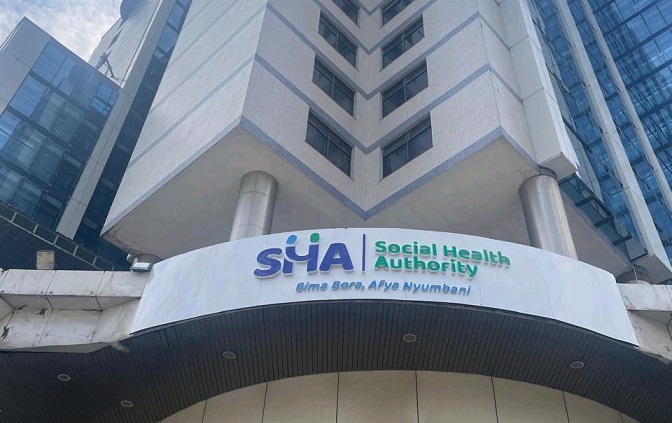
RUPHA calls off SHA boycott after Ruto’s directive on NHIF arrears
The Rural & Urban Private Hospitals Association of Kenya (RUPHA) has lifted its boycott of Social Health Authority (SHA) services following President William Ruto’s directive to settle National Health Insurance Fund (NHIF) arrears and implement a verification process for larger claims.
While acknowledging that the directive does not fully resolve the financial strain facing healthcare providers, RUPHA described it as a critical first step toward addressing the crisis.
However, the association maintained its suspension of services under Medical Administrator Kenya Limited (MAKL), citing the company’s failure to address providers’ concerns.
“After extensive deliberations, RUPHA has resolved to call off the boycott of SHA services but will continue to suspend MAKL services due to a complete lack of action on the issues raised,” the association said in a statement.
The decision to resume SHA services, RUPHA noted, is based on several key factors, including the government’s commitment to settling NHIF arrears, the need for equitable payments to facilities owed more than Ksh 10 million, and the importance of constructive engagement to prevent divisions among healthcare providers.
President Ruto’s directive includes the immediate payment of NHIF claims below Ksh 10 million, covering 88 percent of affected healthcare facilities, 2,986 in total.
This move is expected to provide urgent financial relief, particularly for Level 2, 3, and 4 hospitals.
For facilities owed more than Ksh 10 million, RUPHA has formally requested an upfront payment of Ksh 10 million to ease financial strain while awaiting verification, arguing that no provider should be placed in a worse financial position due to procedural delays.
RUPHA emphasized that while the boycott was a necessary advocacy tool, it was never intended as a permanent measure.
“Now that the government has demonstrated goodwill, the association is committed to proactive engagement to ensure full implementation of commitments while continuing to advocate for fair treatment of all providers,” the statement read.
The association also warned that the phased approach to payments risked creating divisions by prioritizing smaller hospitals over larger ones.
To prevent this, RUPHA is pushing for equitable reimbursement to maintain solidarity among its members.
Despite progress on SHA payments, RUPHA reaffirmed its decision to continue withholding services from MAKL, citing unresolved financial and administrative concerns.
The association accused MAKL of failing to reconcile outstanding debts, withholding remittance advice for payments, and imposing unilateral invoice discounts of up to 30 percent without provider consent.
It called on MAKL’s underwriters, Minet and CIC, to immediately intervene and ensure fair business practices.
While RUPHA has suspended the SHA boycott, it warned that further action would be taken if the government fails to honour its commitments.
If payments to facilities owed less than Ksh 10 million are delayed, the association will reassess its position and consider reinstating service suspensions.
Similarly, if facilities owed more than Ksh 10 million do not receive an upfront payment, RUPHA will escalate its engagement with Parliament to secure fair budgetary allocations.
Should the verification process exceed 90 days, the association will push for urgent review and may resort to industrial action.
If MAKL and its underwriters fail to act on the grievances raised, RUPHA vowed to escalate the matter to regulatory and legal authorities to protect healthcare providers from exploitative financial practices.
Going forward, RUPHA will push Parliament to expedite approval of the supplementary budget to unlock funds and closely monitor payments to ensure compliance.
The association urged members to report any delays or irregularities in disbursements for prompt intervention.
Commending the unity and resilience of its members, RUPHA acknowledged the progress made but insisted that the fight for fair and sustainable healthcare financing is far from over.
The association affirmed its readiness to mobilize again if the government or insurers fail to meet their obligations.
